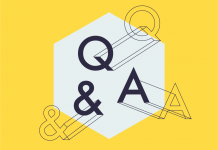Although ‘Fake News’ is a relatively new term, it is currently considered one of the greatest threats to democracy and free debate.
The Netflix documentary The Great Hack, chronicling the rise and fall of Cambridge Analytica, uncovered how Facebook data was used to send potential voters insidious right-wing propaganda packaged as news.
Index
- Origins of fake news
- How does Fake News affect us? How does
fake news work?- They catch the attention
- They create false memories
- They appeal to the emotional
- Tips to resist fake news
Origins of fake news
The year was 1938, the world was still recovering from the “Great Depression” that began that Black Tuesday of the 29th on Wall Street. In old Europe, an atmosphere of pre-war uncertainty could be felt, which kept the world population on edge.
On October 30, at 9 pm, in the middle of Halloween, Orson Welles narrates live, through the airwaves of CBS, the adaptation of the novel “The War of the Worlds”, by HG Wells. In that convulsive atmosphere, millions of people panicked, totally convinced that the United States was being invaded by an alien army.
The emergency telephone numbers were saturated with calls from people who claimed to have seen the aliens. Many people abandoned their homes, collapsing roads and train stations. Twelve million people listened live to the most famous episode in radio history.
Although, at the beginning of the episode, during the presentation it was reported that it was a fiction, millions of people, who later joined the broadcast, believed what they were hearing, suggesting themselves, in some cases, to the point of believing see the very aliens on the streets.
Although the radio was widely listened to at that time, the power of spreading news in the 1930s was not nearly as good as it is today, thanks to the Internet.How does Fake News affect us? How does
fake news work? Neuroscience can provide some answers to these questions: They capture attention
The
first objective of false news (or fake news) is to capture our attention, and for this reason, novelty it’s key.
Psychologists Gordon Pennycook and David Rand suggested that one reason hyperpartisan claims are so successful is that they tend to be outlandish.
In a world full of surprises, we have developed an exquisite ability to quickly detect and orient ourselves to unexpected information or events. Novelty is an essential concept that underlies the neural basis of behavior and plays a role in almost every stage of neurological processing.
Sensory neuroscience has shown that only unexpected information can leak to higher stages of processing. Therefore, the sensory cortex may have evolved to adapt, predict, and calm the expected regularities of our experiences, focusing on events that are unpredictable or surprising.
Neural responses are gradually reduced each time we are exposed to the same information, as the brain learns that this stimulus has no reward associated with it.
The novelty itself is related to motivation. Dopamine , a neurotransmitter associated with reward anticipation, increases when we are faced with novelty .
When we see something new, we recognize its potential to reward us in some way. Other studies show that the ability of the hippocampus to create new synaptic connections between neurons (a process known as plasticity) is increased by the influence of novelty. By increasing the plasticity of the brain, the potential to learn new concepts increases. They create false memories
Fake news is also stored in our memory as a memory. A recent study, published in Psychological Science, highlighted that exposure to fake news can induce false memories.
This is one of the largest false memory experiments to date. The scientists surveyed registered voters in Ireland during the week before the 2018 abortion referendum.
Half of the participants had a false memory for at least one made-up event, and more than a third of the participants claimed to have memories such as “eyewitness”. ocular”.
An in-depth analysis revealed that voters were more likely to form false memories for fake news that closely aligned with their beliefs, particularly if they had low cognitive ability.
In addition, repeated exposure can increase the feeling that misinformation is true. Repetition creates the perception of group consensus that can result in collective recall, a phenomenon called the Mandela Effect. They appeal to the emotional
The ability of fake news to capture our attention and then anchor itself in our learning and memory circuits largely explains its success. But its strong point is in the ability to affect our emotions.
Social media studies show that text spreads most virally when it contains a high degree of “moral emotion,” which drives everything we do.
Decisions are often driven by deep-seated emotions that can be difficult to identify.
In the process of making a judgement, we rely on our ability to place information in an emotional frame of reference that combines facts with feelings.
Our positive or negative feelings about people, things, and ideas arise much faster than our conscious thoughts, long before we are aware of them. An interval so short that there is no recognition or recall of the stimulus. Tips to resist fake news
The way our memory works means it might be impossible to completely resist fake news.
But one way to do that is to start thinking like a scientist. This implies adopting a critical and questioning attitude motivated by curiosity, while being aware of our own personal prejudices.
To question fake news, we should ask ourselves the following questions:
- What kind of content is it? Many people rely on social media as their main source of news. Reflecting on whether the information is news, opinion or even humor can help to consolidate the information more truthfully in memory.
- Where is it posted? Paying attention to where information is posted is crucial to encoding the source information in memory. If something is a big deal, a wide variety of sources will discuss it, so it’s important to pay attention to this detail.
- Who benefits? Reflect on who benefits from believing that the content helps to consolidate the source of that information in memory. It can also help us reflect on our own interests and whether our personal biases are at stake.
Some people tend to be more susceptible to fake news because they are more accepting of weak claims.
But we can strive to be more thoughtful in our open-mindedness by paying attention to the source of information and questioning our own knowledge.
Simply being exposed to a fake news headline can increase subsequent belief in that headline, so scrolling through social media laden with emotion-provoking content has the power to change the way we see the world and make political decisions.
The novelty and emotional conviction of fake news, and how these properties interact with the framework of our memories, is beyond our brain’s ability to analyze.
Although it is impossible to imagine a democracy without disagreement, no constitutional agreement can work if everything is a value judgment based on misinformation.
In the absence of an objective perspective on reality, we are condemned to leave our political identities and beliefs at the mercy of the most basic functions of our brain. Neurita, psychology and neuromarketing , is a dissemination platform where you will find trends, curiosities and news in Psychology . In addition to information on health marketing.
Do you want to be the first to know the mysteries of Psychology ?
Join the Neurita community , and enjoy super exclusive content.









































